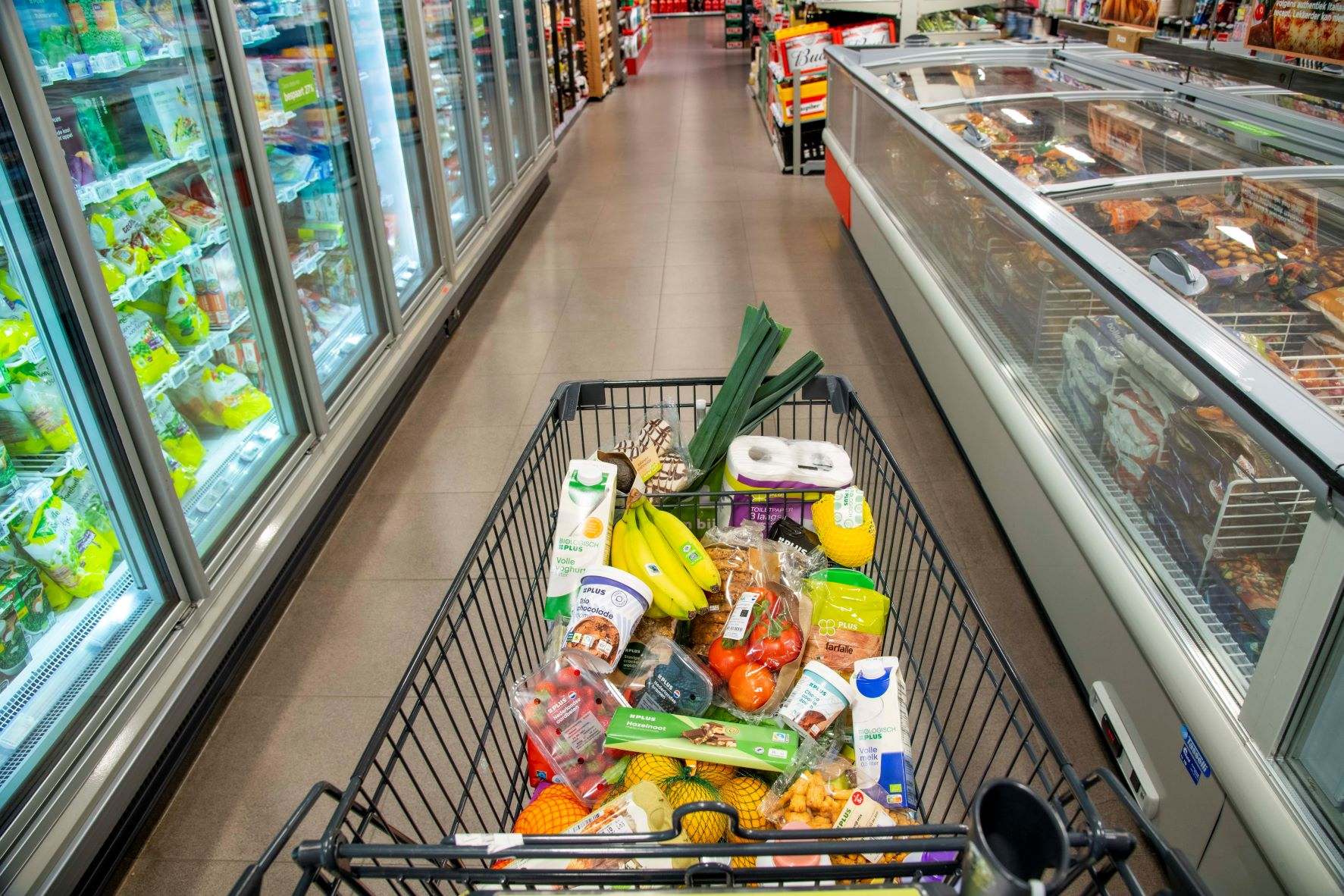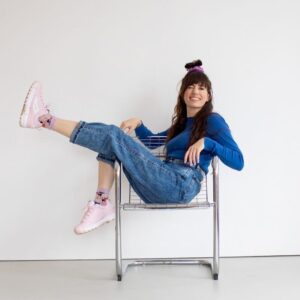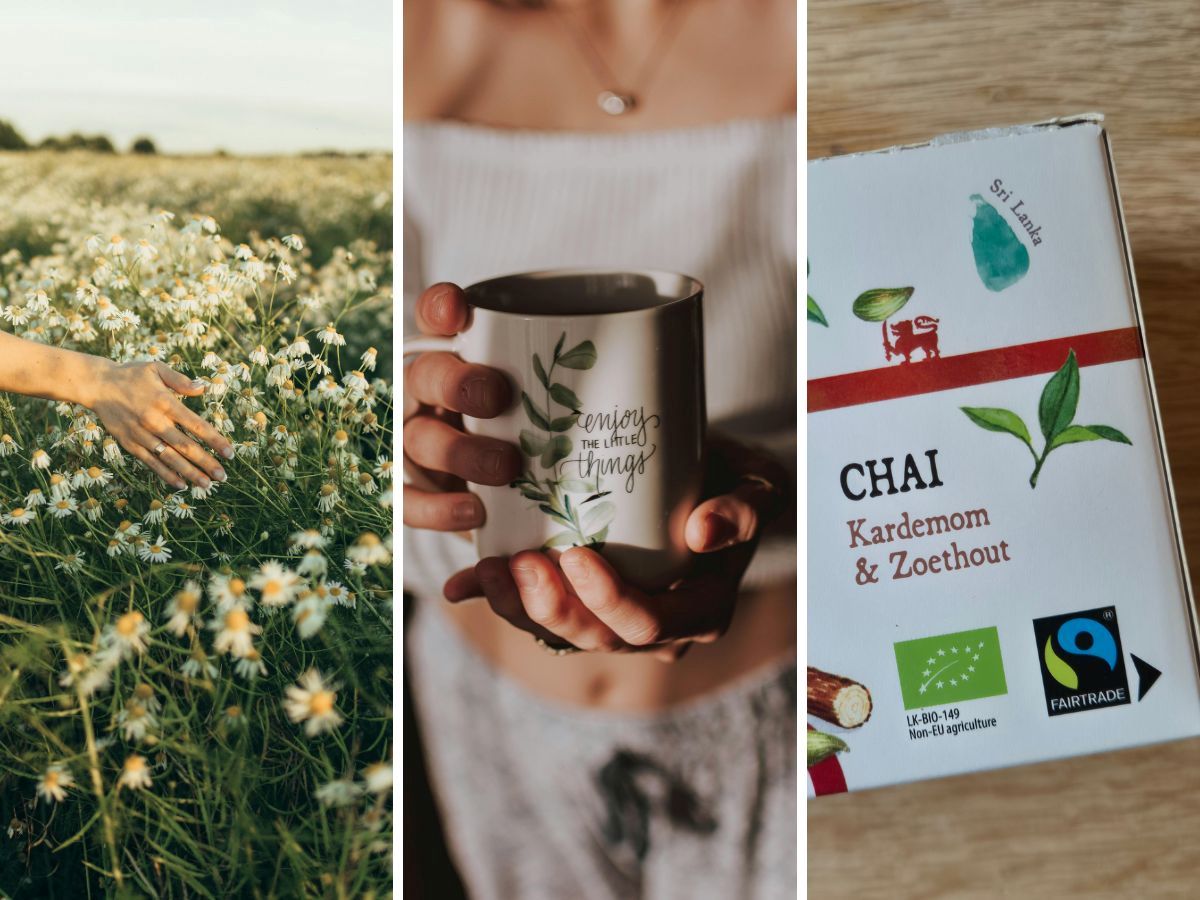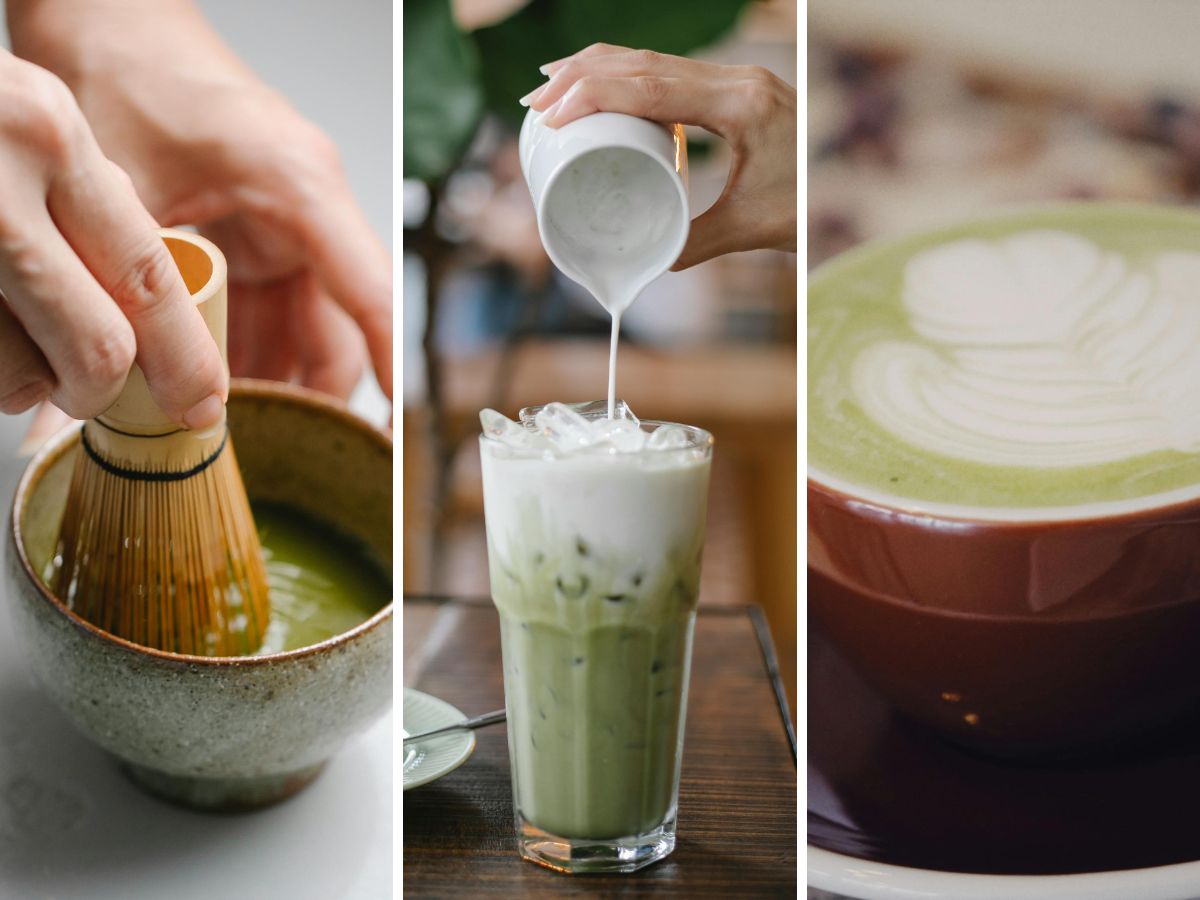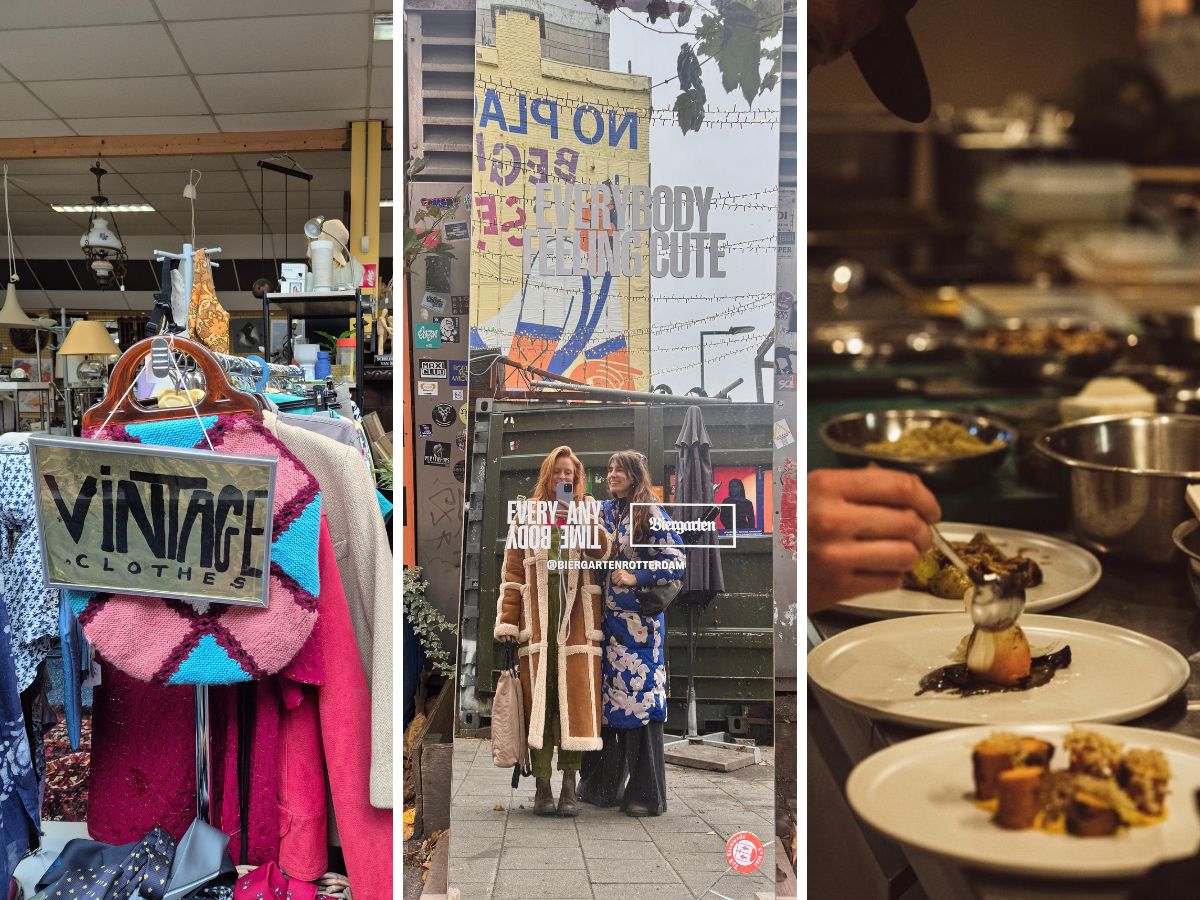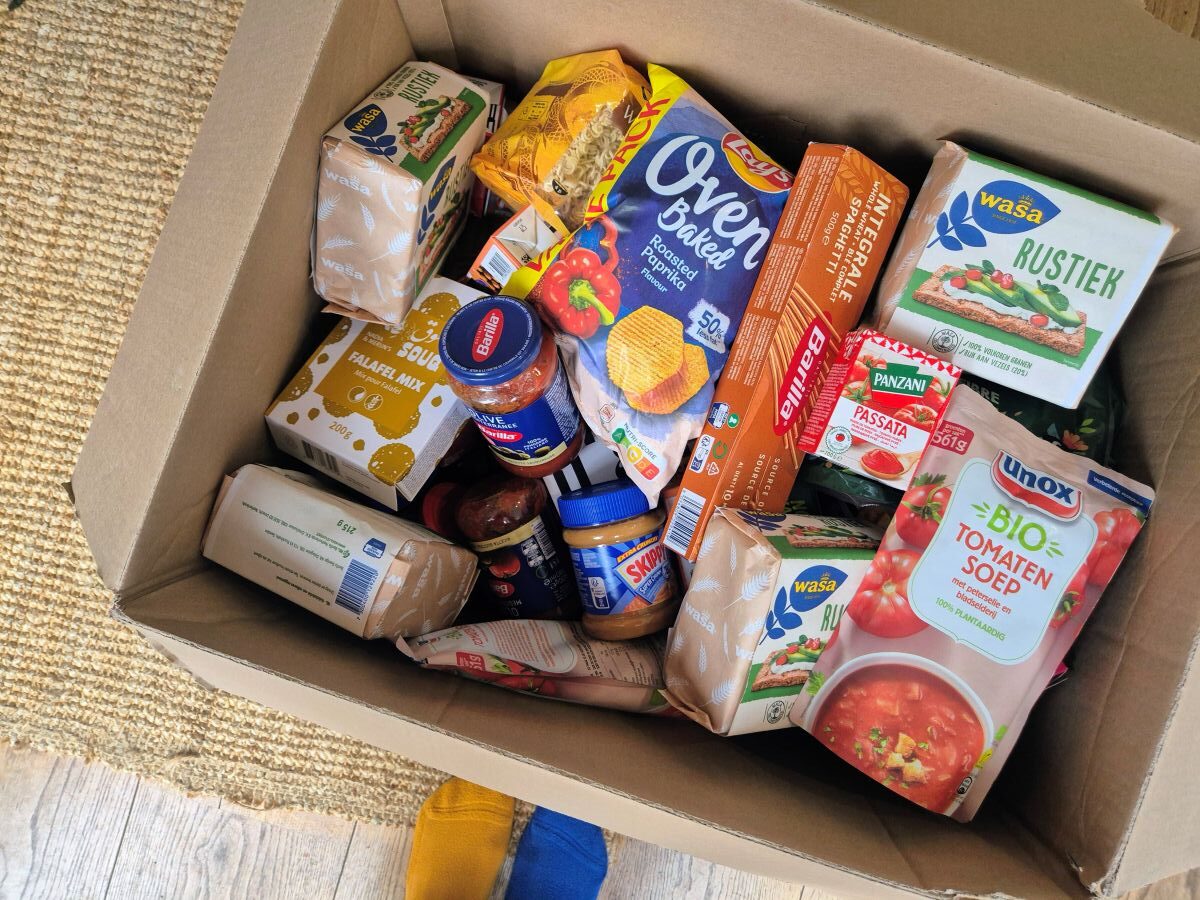You might not notice it as you whiz past the shelves with your trolley, but a supermarket can turn lots of knobs to reduce its impact on the environment. We sat down with Elise from PLUS supermarket following the news that from now on all PLUS private label fresh dairy is organic by default (and comes from Dutch cows) without raising the price. ‘We take care of the extra price so that consumers can make attractive sustainable purchases. Even in times of inflation. The farmers do, of course, get the extra price appropriate to organic.’
PLUS supermarket sustainable?
In partnership with PLUS supermarket
In the village where I live, Ouderkerk aan de Amstel, we are lucky to have a nice PLUS supermarket. It's a good place for my sustainable groceries and I regularly save some discounted leftovers that are almost past their THT date. That me can contribute to a better planet with my shopping style is self-evident to me. But what can a supermarket actually do? My conclusion after talking to Elise: a lot. Because with the purchase of more sustainable products, transport, packaging materials, less food waste and energy generation, a retailer like PLUS with over three hundred shops can do a lot to be more climate- and environment-friendly. Small steps are also extremely important, because a supermarket chain is a big company. Are you critical of supermarkets? Then definitely read this interview, I could put all my questions and prejudices to Elise and I am positively surprised about ‘my PLUS’.


A wide range of organic, local and seasonal produce at Plus.
PLUS private label is often already a more sustainable choice
Organic, affordable dairy for all, is of course just one product category. So I wonder: is this sustainability thinking reflected in multiple product groups? Elise: ‘We have been increasing sustainability for years and in several categories. For instance, in 2012 we were the first supermarket to decide to only sell fair trade bananas, our private label coffee and tea has been fair trade for more than a decade, and since 2020 this also applies to our private label cocoa: whether you buy something with a pinch of cocoa, our chocolate sprinkles or a chocolate bar: all our private label products with cocoa contain 100% fair trade certified cocoa. And if you buy eggs from us, they are always free-range eggs or even more sustainable. We often already make a more sustainable choice for our customers.’
Why switching to organic milk was a mega step for PLUS
‘Last year, we took the first big step towards organic dairy. We started then with half and whole litres of milk and buttermilk and the litre packs of yoghurt. It was a long road, partly because of the high volume we needed. By now, customers know our organic dairy and there is sufficient volume available in the Dutch market. Therefore, together with customers and farmers, we are now taking the next step and now the one-and-a-half and two-litre packs of milk are also organic as standard. More organic dairy, means more customers we reach with organic without raising the price. And a larger group of organic farmers we support. Together, we contribute to a more positive impact on the environment. Dutch cows have more space, walk in the meadow and get organic feed. Organic farmers take good care of the soil, working without pesticides. That's why on organic pastures you find multiple species of grasses and herbs and lots of clovers and flowers. This is good for biodiversity.’
Source: PLUS
Halving food waste
More and affordable organic products is great, but that's not all it takes as a supermarket. Food waste, for instance, is also a big problem in the Netherlands and worldwide. In the Netherlands alone, a quarter of all our food is wasted and this happens throughout the chain: at the producer, during transport, in restaurants, supermarkets and also in people's homes. How do you minimise waste and, as a supermarket, how do you contribute to the goal of halving food waste by 2030? Elise: ‘The more than three hundred PLUS supermarkets are largely run by independent entrepreneurs. We buy the products centrally. That centralisation helps to buy consciously and minimise waste, but impending food waste is indeed a problem. PLUS supermarket entrepreneurs decide for themselves how to deal with it. Over one hundred and fifty shops are affiliated to Too Good To Go, surpluses are also donated to the Food Bank or to Surplus (they cook in community centres) and of course we mark down products that are approaching the THT date. Because you can still enjoy these delicious products too.’
Facts & figures on food waste
Of all the food, including drinks, offered by Dutch supermarkets in 2020, an average of 98.4% was sold. In other words, 1.6% of food, expressed in kilograms, did not reach consumers. As such, the amount of food waste in supermarkets decreased by 3.6% compared to 2018. Most food waste takes place in people's homes: on average, 23-32% of all waste comes from households. We waste 34 kg of food and 45 litres of drink per person per year, on average one hundred and twenty euros of groceries are thrown away per year (this figure is from 2019, before inflation).
Source: Together Against Food Waste
Local and seasonal produce at PLUS
Reducing food miles from farm to fork is an important step to stop climate change and reduce environmental damage, of global emissions, a third of all greenhouse gases come from the food system*. That's huge! A supermarket can play an important role in this by buying locally. How does Elise from PLUS see this? ‘If possible, we source our products from as close as possible. We work with Dutch fruit and vegetable growers who supply seasonal fruit and vegetables, this summer we even have a small homegrown watermelon. But not everything grows here, so fruit like banana and pineapple we have to import. We also work with our own farmers for meat. Like our a closed and controlled pig chain where we work with 16 regular Dutch pig farmers.’
Elise also tells me that PLUS wants to distinguish itself by truly being a neighbourhood supermarket, which is why each supermarket can also offer regional products of its own choice on its shelves. So now that you mention it, I have noticed that on holiday in Friesland. ‘In addition, PLUS entrepreneurs sponsor sports clubs and associations in their neighbourhood, encourage community centres and primary schools to opt for a healthy lifestyle and are committed to reducing street litter.’
Plant-based and vegan shopping at your PLUS supermarket
When it comes to plant-based and vegan shopping, many people probably don't think of PLUS. Elise: ‘Indeed, we might have been a bit behind, but we are catching up. In the past eighteen months, we have included more than a hundred meat substitutes in our range. And those who know our brochure may have noticed that we always have a meat replacement on offer alongside a meat offer. We also offer a lot of inspiration in our folder, magazine and online to choose a more plant-based diet. There is so much choice and possibilities to put delicious dishes on the table. If you ask me personally as a vegetarian, I think there should be even more focus on a plant-based and vegan offering.’
Less packaging and more recyclable
Although packaging is a relatively small negative impact maker, people do fall over the large amount of ‘unnecessary packaging’ these days. Does PLUS find (and see) this too? ‘With the recent restyling of our house brand, besides making our products healthier (less, sugar, salt and fat) we have indeed also taken a close look at our packaging. Packing less and using more recyclable material is also what we want. We also have a target to use 20% less packaging material by 2025, and by 2025, 95% of our packaging material, should be recyclable. For instance, we were the first supermarket to discontinue black plastic packaging on our private label. It turned out that this packaging was coloured with carbon black and partly because of this it could not be properly identified in all sorting machines. This stands in the way of good recycling.
Another example: before, our pastries were in plastic packaging, now they are in cardboard with a see-through window made of recyclable plastic. This packaging can be easily separated by the consumer’. Why not all cardboard? ‘Exactly that is what I wondered too, but it turns out that people want to be able to see and judge the pastry before they buy it. A few things you might have already seen is that our nuts and salts no longer have double lids, and grapes, for instance, no longer have unnecessary high plastic lids either. But packaging remains a tricky issue. Sometimes it is more hygienic to pack it anyway or it is necessary for transport. And organic products have to be visibly different and have the designation organic. Super crooked that precisely these products need extra packaging. Fortunately, you see more and more original ideas like edible stamps, branding on vegetables like pumpkins or a subtle banding on an organic courgette.’
Impact of packaging
‘If you dissect a product, packaging accounts for 10% of the impact on average, 15% is caused by waste and the rest of the impact is in production. In short, food production is the most impactful. You make a sustainable choice mainly by choosing eco-friendly products, such as vegetarian and vegan products, local and seasonal products and not wasting food. Packaging is a relatively small impact maker.’
Source: Milieu Centraal
Renewable energy and avoiding energy waste
In my PLUS supermarket I see LED lighting, the refrigeration obviously has doors to minimise energy waste. But is that energy generated sustainably? Or even better: does PLUS generate it itself, because rooftops are enough you would say? ‘The answer to the first question is yes: energy contracts are concluded centrally for at least 90% of our shops, this is green power. As for self-generation, if it is up to me we are going to develop an ambition on that. More solar panels on shops would be very possible and a fantastic next sustainable step! Meanwhile, our new and sustainable distribution centre in Oss that we are currently building is full of eleven thousand solar panels.’
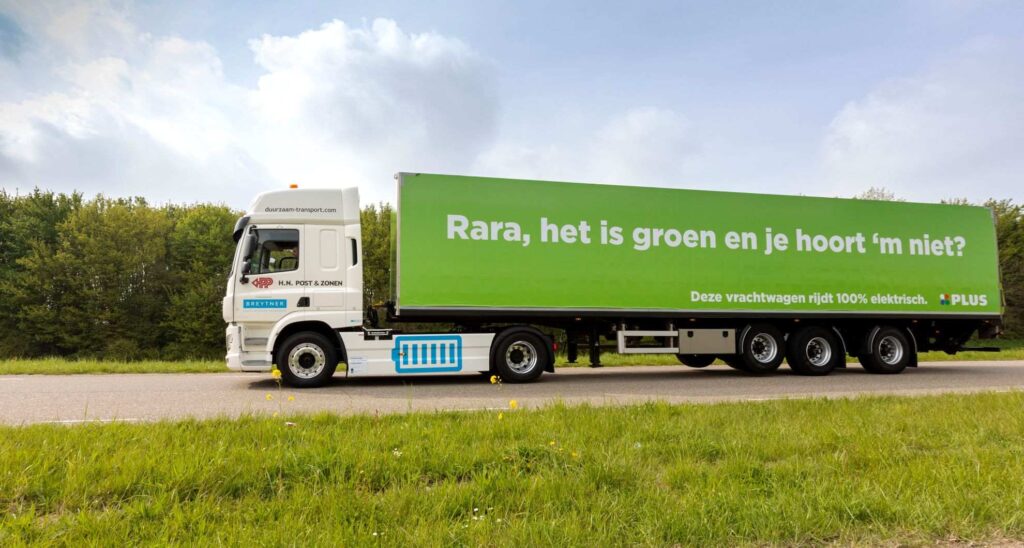
The first electric truck of PLUS supermarket.
Biggest challenge: making transport more sustainable
Another not-so-sustainable image I have of supermarkets are those huge distribution centres and trucks driving back and forth. I don't want to know how many kilometres those huge diesel trucks travel every year to supply the supermarkets and thus us with food. Elise: ‘If you look at the impact of our business, transport is a big negative impact maker. All supermarkets need to be constantly supplied to cope with the high demand for products. And so we are looking at how this can be done more sustainably. We were the first supermarket with an electric truck, a great breakthrough and therefore a very expensive investment. Unfortunately, you can't just buy six of those.’
New sustainable distribution centre
‘Perhaps a more feasible smaller step is to substitute fuel for biodiesel, for example. That is something I am personally curious to see if we can look at this to see if it is feasible for us. In early 2023, we will open a new, super-sustainable distribution centre in Oss. This building has a BREEAM Excellent - certificate where it was tested on nine sustainability aspects. Choices in sustainability are reflected in material use, heat recovery and water management. Furthermore, it meets the highest sustainable building requirements. With the opening of this sustainable building, we close four old and less sustainable distribution centres. One central supply point for groceries will reduce traffic.
Find out more about sustainability at PLUS.
More sustainable shopping tips from thegreenlist.nl
- Also see: which fruit and vegetables do you keep in the fridge and which do not?
- Also see: the truth about plastic packaging.
- Also see: all seasonal products in a row.
Source: Together Against Food Waste. Photo credits: PLUS.

